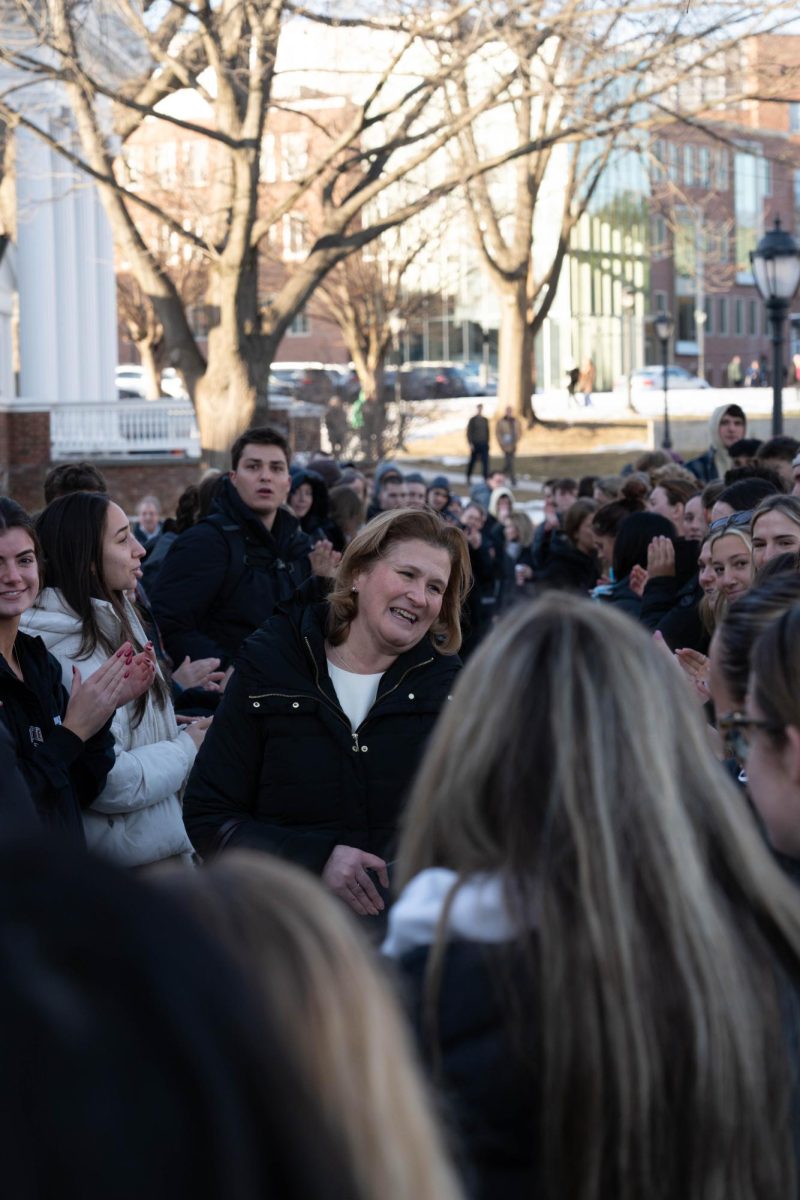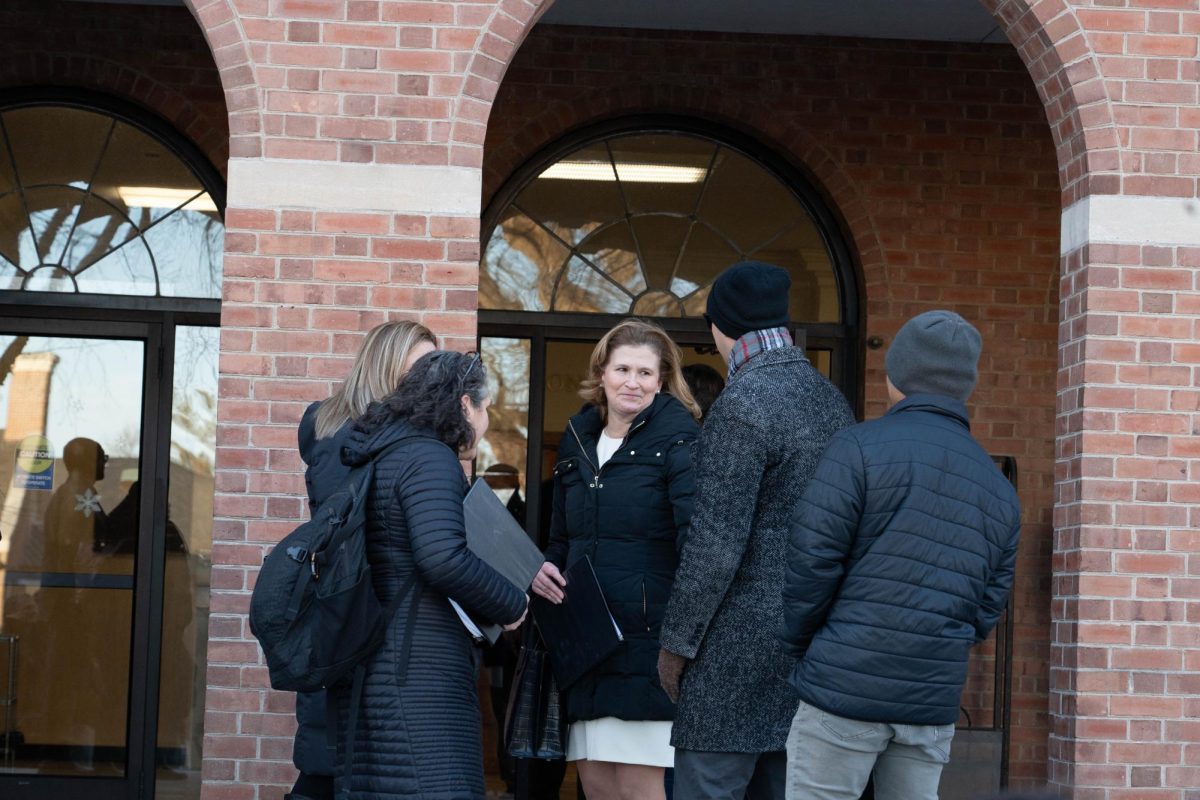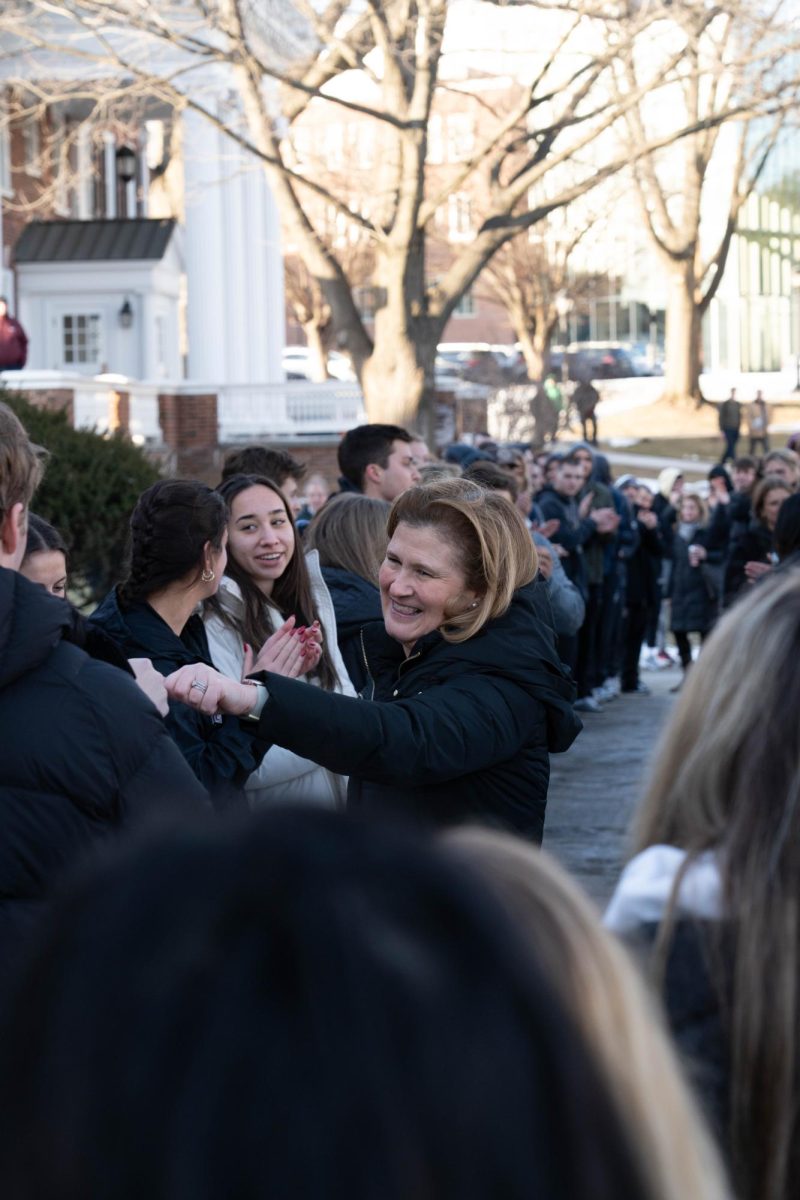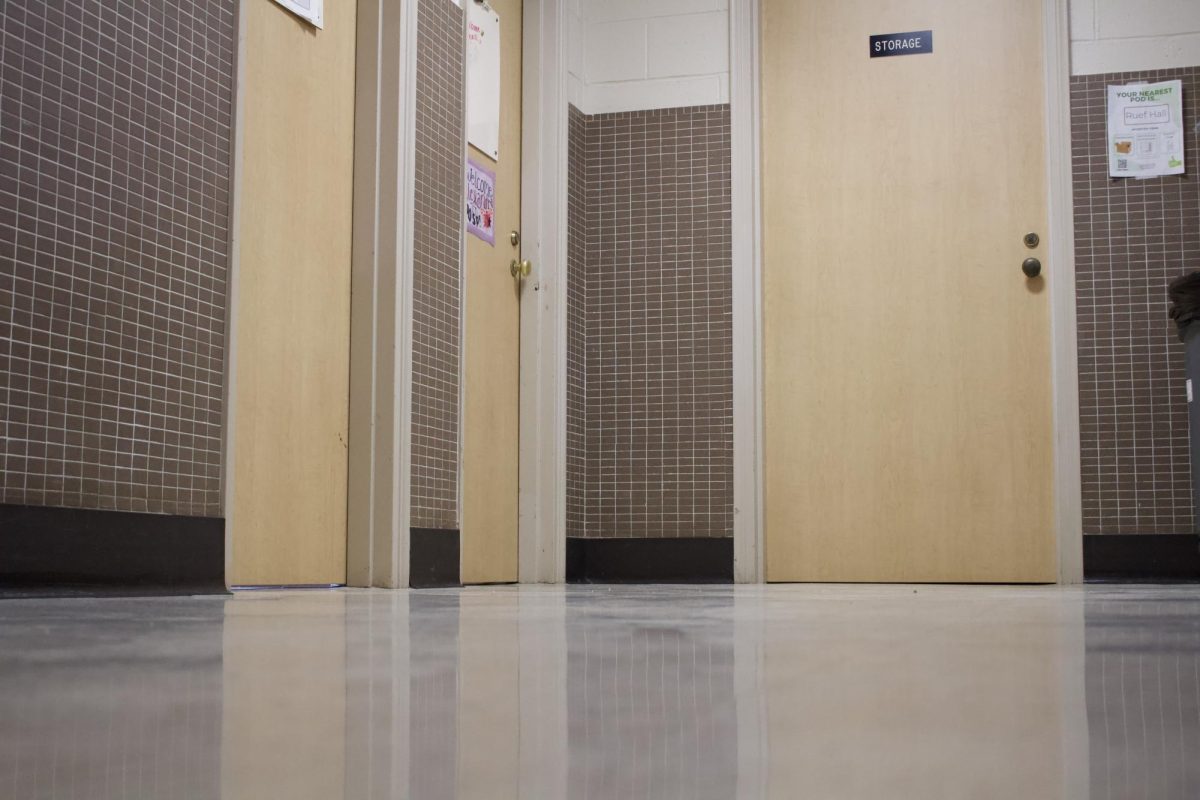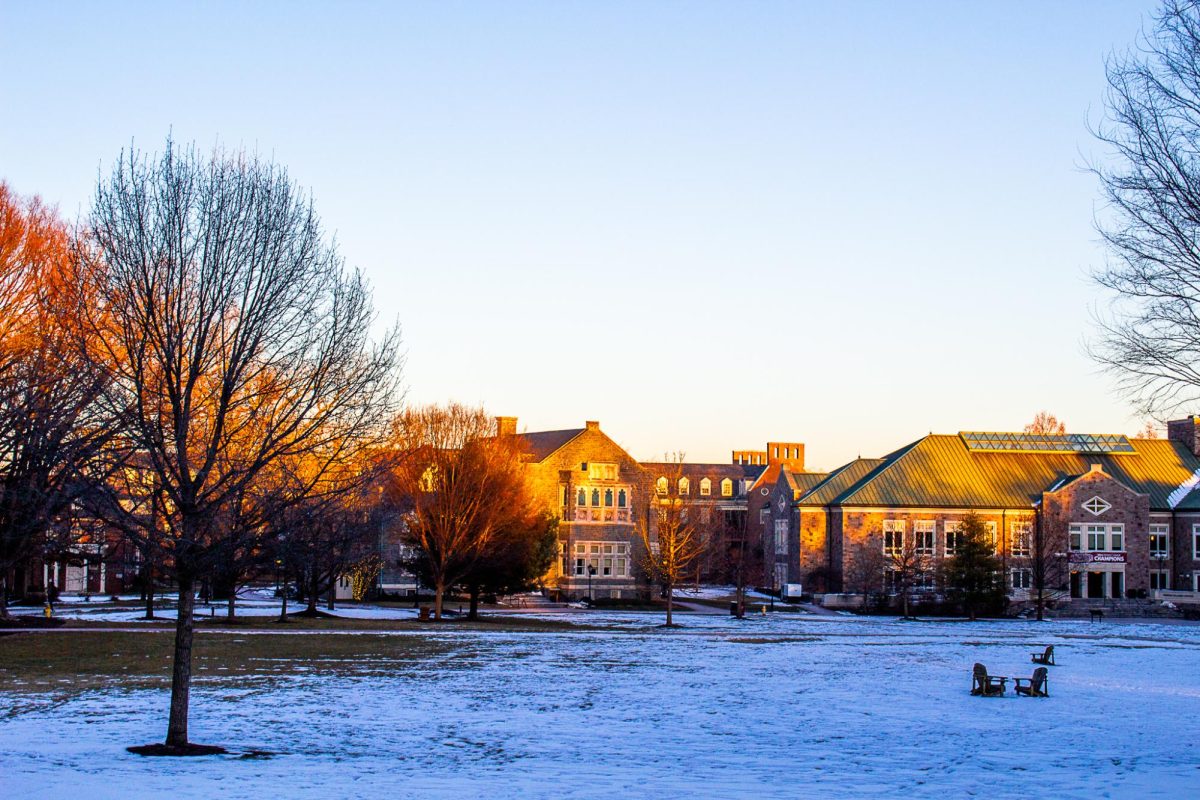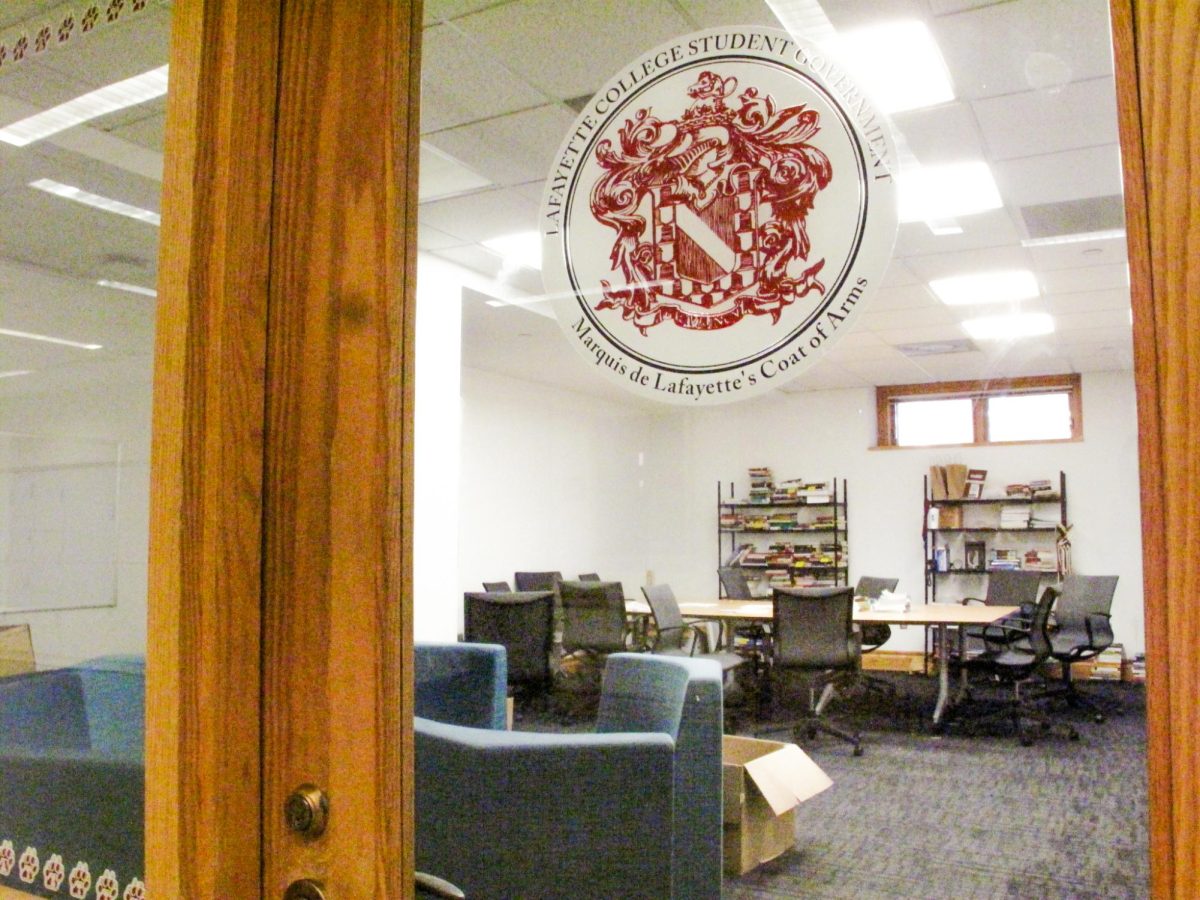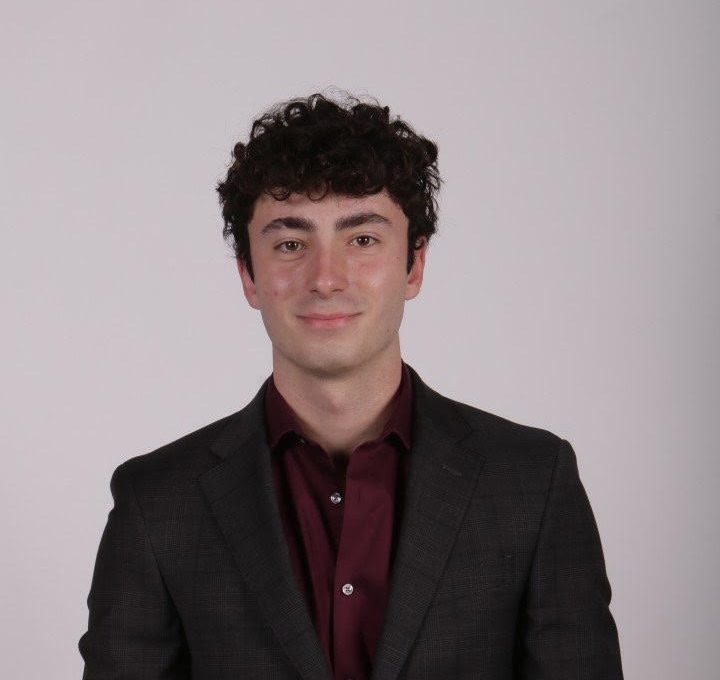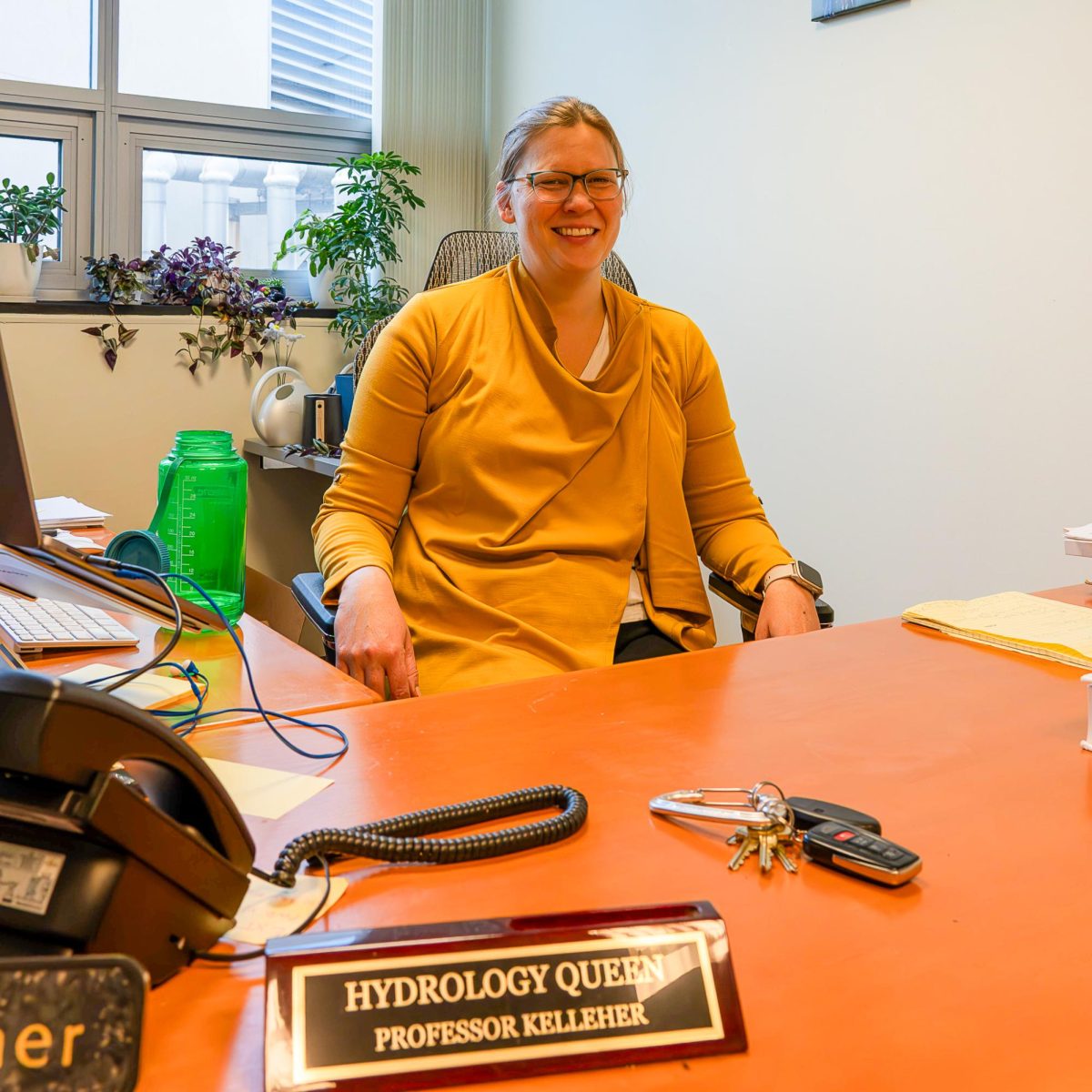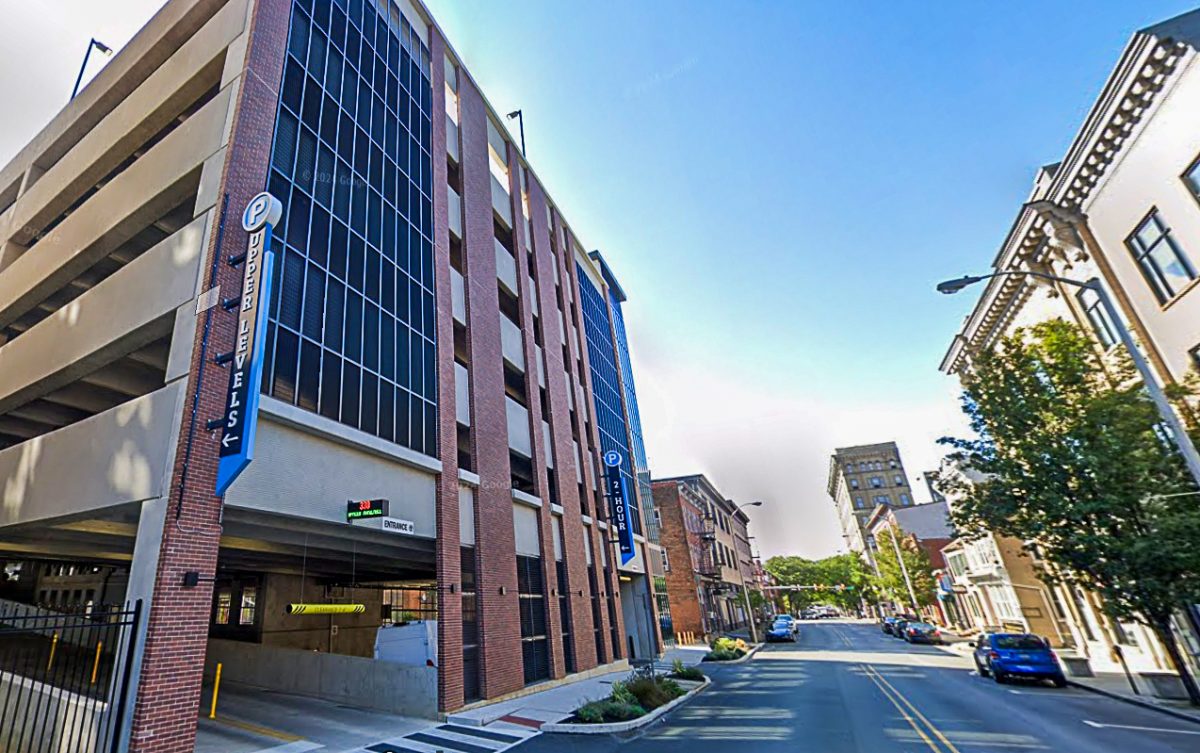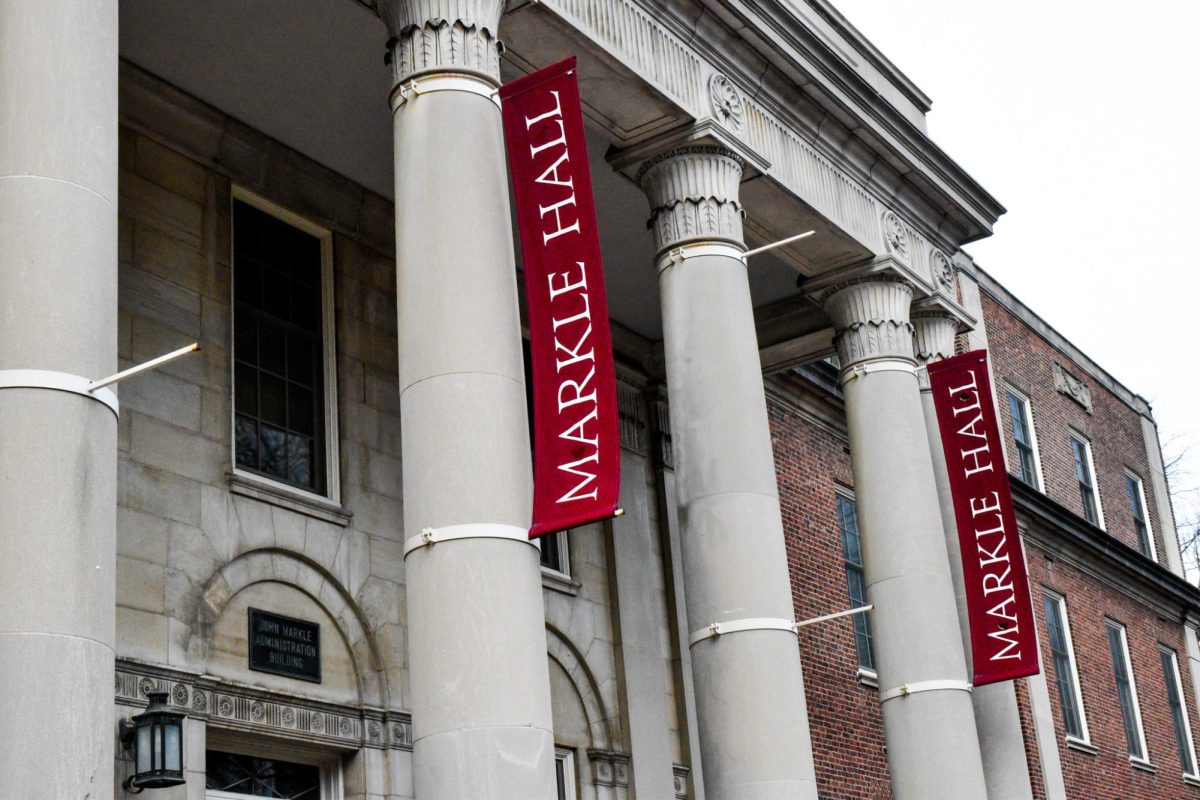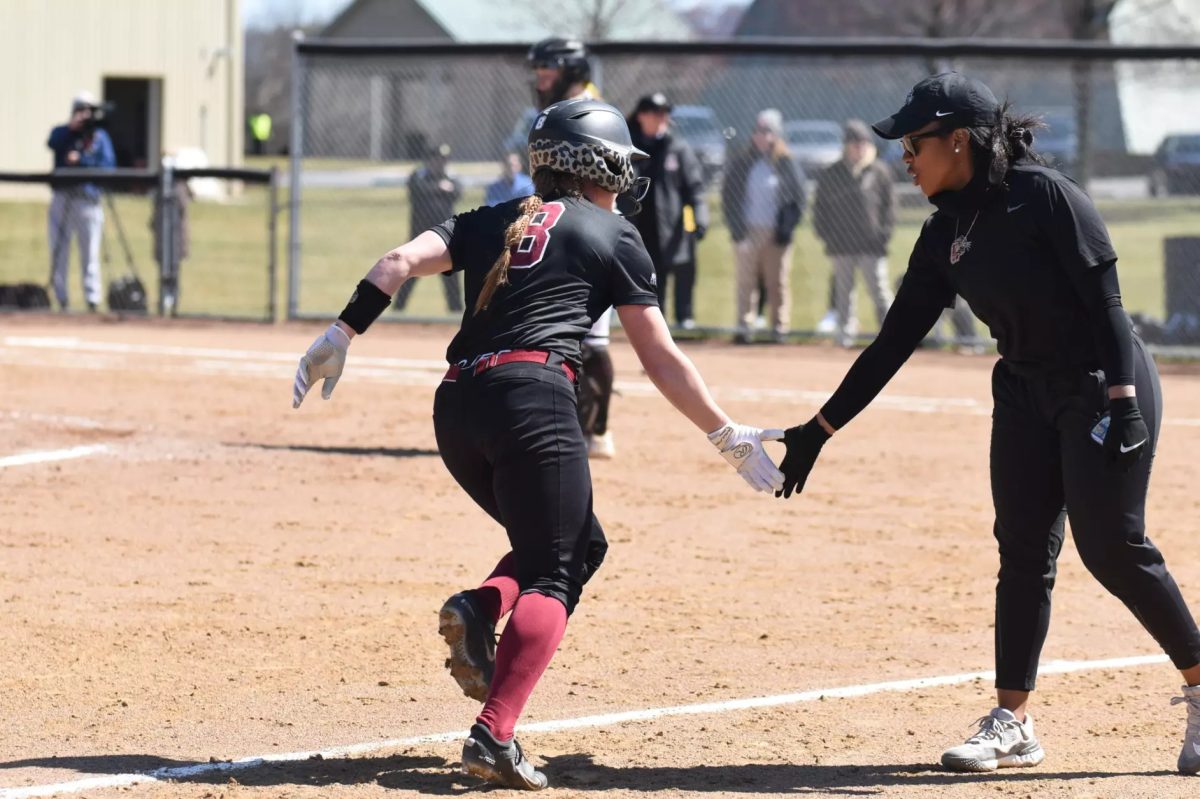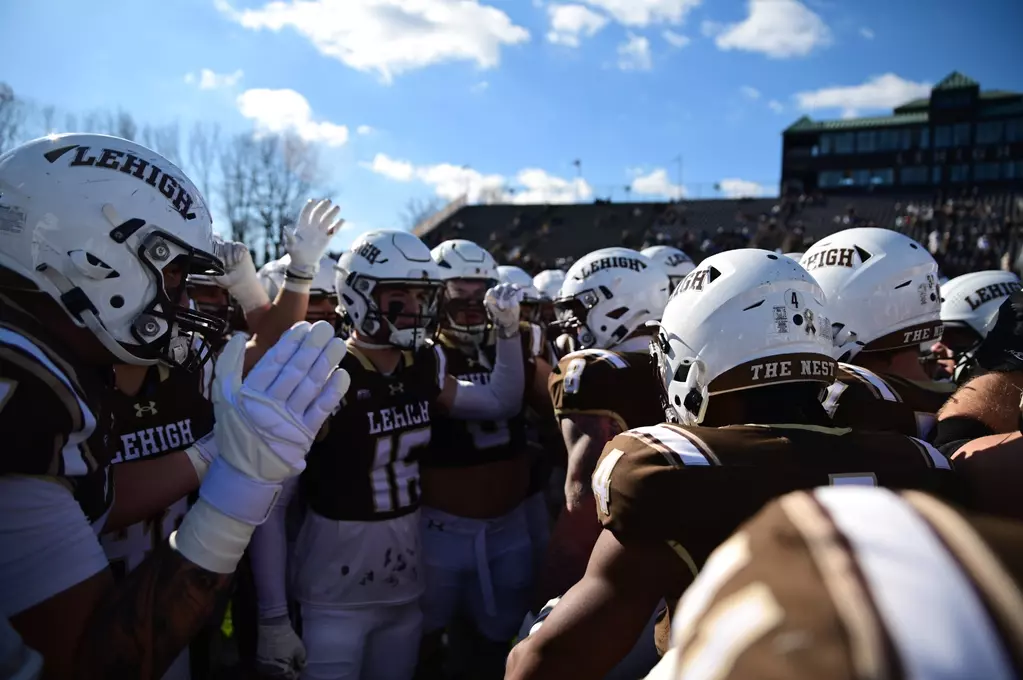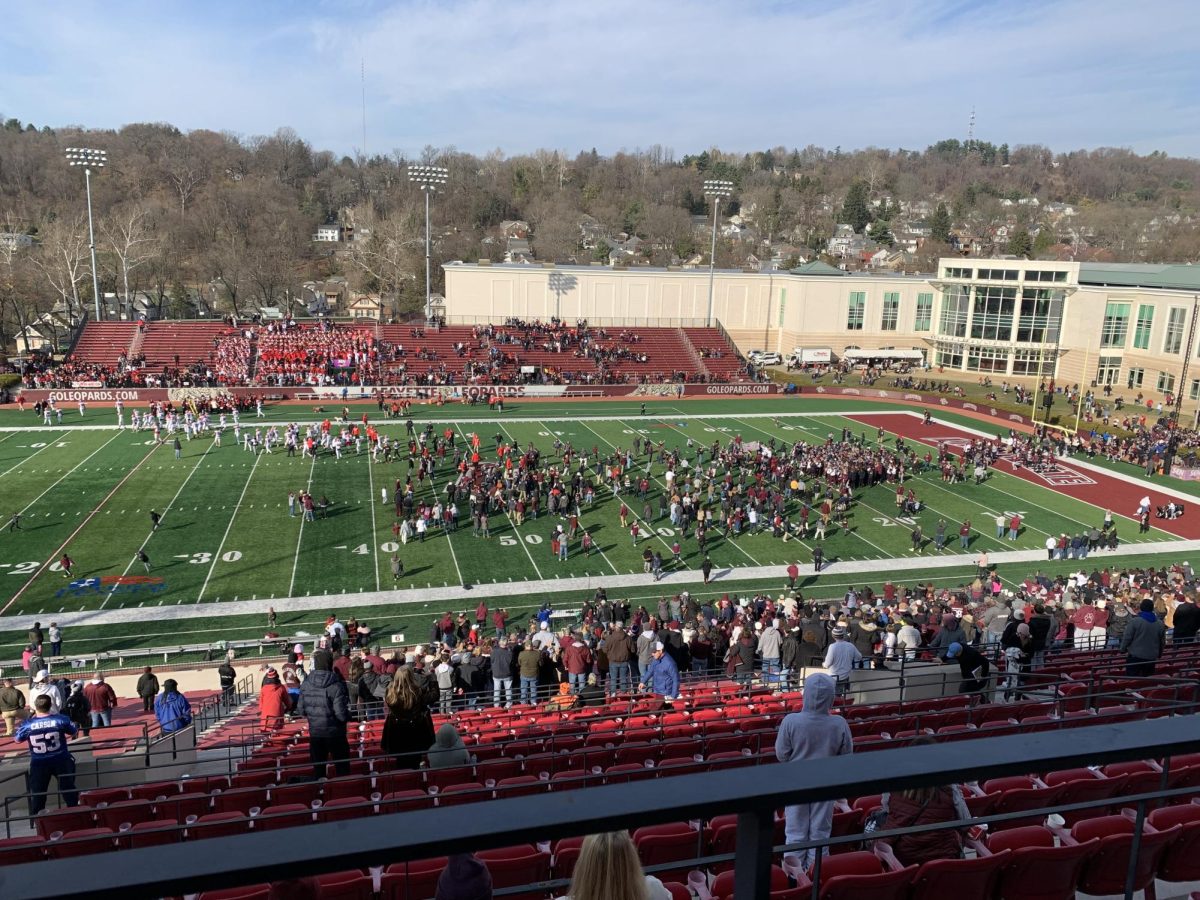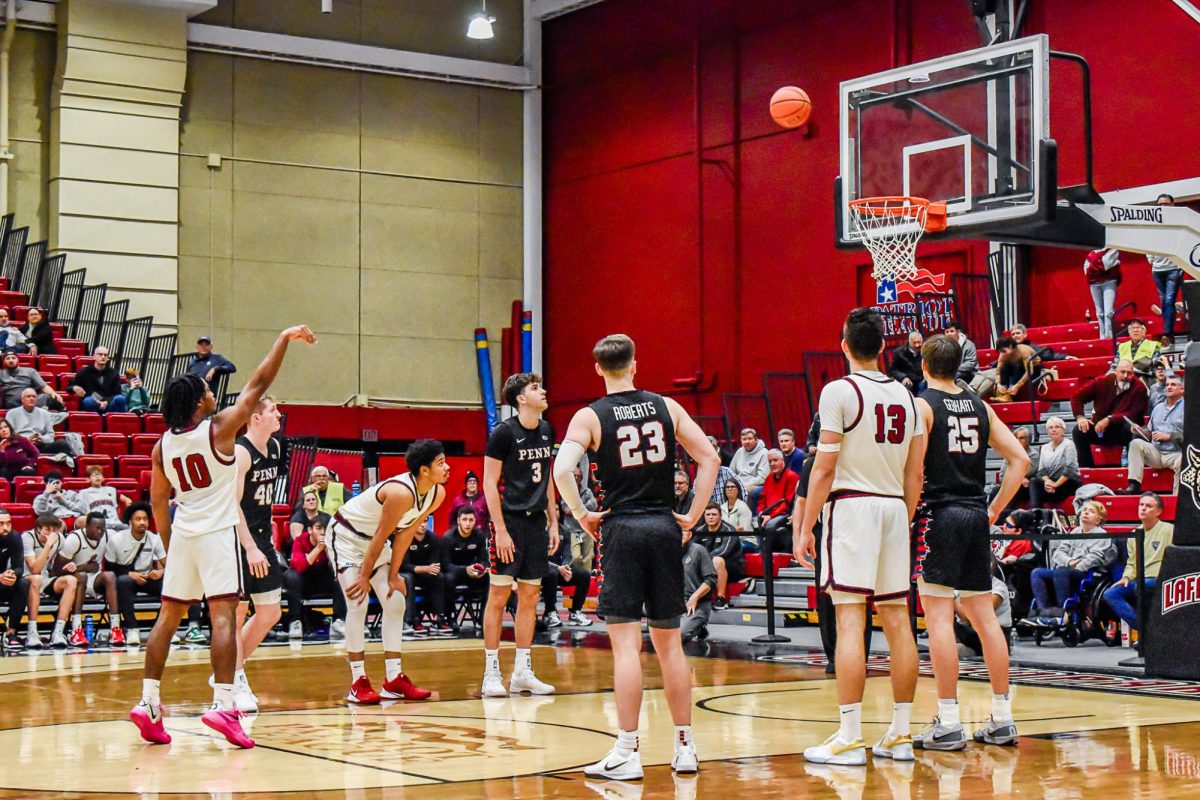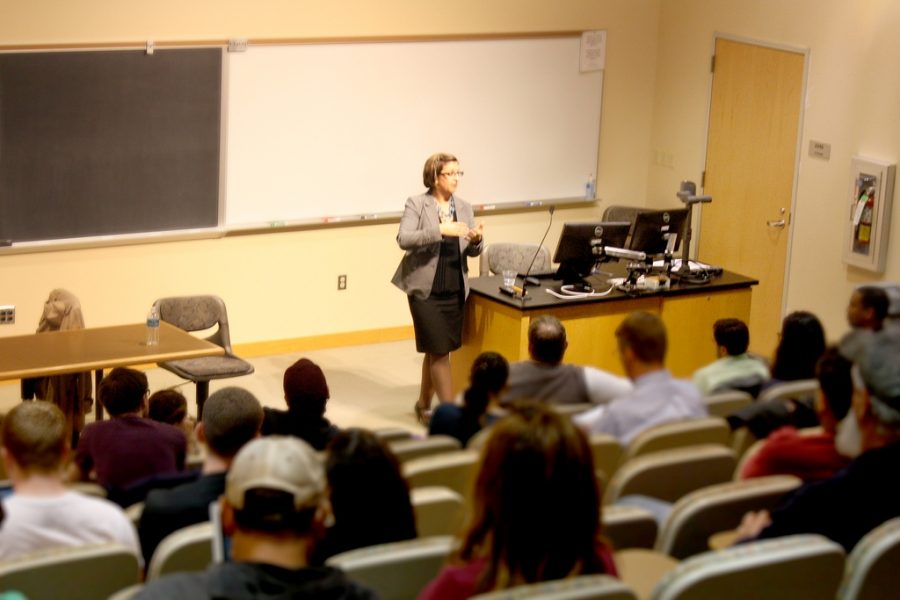Photo by Tatianna Troxell ‘17
Lafayette’s sexual assault policy is due for an upgrade, and the administration brought in an expert to help evaluate the best way to improve.
The college’s Title IX Coordinators invited Alison Kiss, executive director of The Clery Center, a nonprofit organization aimed at helping colleges respond to and prevent sexual violence on campus, to talk to the Lafayette community about the sexual assault policies and the climate that surrounds them. The invitation was in response to student concern about the effectiveness of the school’s procedures when dealing with sexual assault crimes.
“I think that our sexual assault policy is pretty convoluted right now,” President of the Association of Lafayette Feminists Heather Hughes ‘15 said. “There are perceptions that it is unfair on both sides, whether you are the alleged or the complainant.”
Kiss invited students, faculty and staff Tuesday to discuss their concerns and get a better understanding of what they felt needed to change.
“We’re here for two days and after that we are going to make recommendations about changes to policy, about education, and certain ideas in implementing the policy,” Kiss said.
One of the biggest concerns voiced at the discussion was the case of anonymity and confidentiality when dealing with sexual assault cases.
“I think one of the challenges to Lafayette is that it is a smaller campus, so how do you make sure you’re protecting the rights and you’re offering support to somebody who discloses a sexual violence but also protect their privacy?” Kiss said.
People at the event also recognized that some students might feel pressured not to report a sexual assault in the first place, in fear of rumors about them being spread across campus.
“Because of the size of our campus, there is a lot of pressure not to report,” Dean of Intercultural Development John McKnight said. McKnight is also the deputy Title IX Coordinator.
Event attendees were also worried about the safety of a victim who reports their sexual assault to the appropriate authorities.
At Lafayette, “everyone will know [who the victim is] and that alleged [perpetrator’s] friends will have very easy access to intimidate the victim,” Hughes said. “And that’s about campus climate, which is a much thornier issue.”
According to Kiss, campus climate refers to the general attitude on campus towards specific issues. She said it is best to work towards changing the campus climate with the current student body, rather than eliminating groups on campus who are the sources of overall attitudes on campus.
“Each campus culture is so different,” Kiss said. “You can’t just mimic what some other institution is doing. I think that simply eliminating the population isn’t the only way to solve or eradicate the situation.”
Changing the attitude towards reporting sexual assault is not only limited to Lafayette, but also the country as a whole.
“I can tell you that around the country, sexual violence is the most underreported issue across the board,” Kiss said. “We have students who don’t report across the country…it’s challenging to really build an environment where you talk about it.”
Despite the issues that Lafayette is currently facing, McKnight is hopeful that Lafayette will overcome these challenges.
“It will be different very soon,” McKnight said.
Kiss gave her evaluation of the school’s policies Thursday, not in time for publication.

